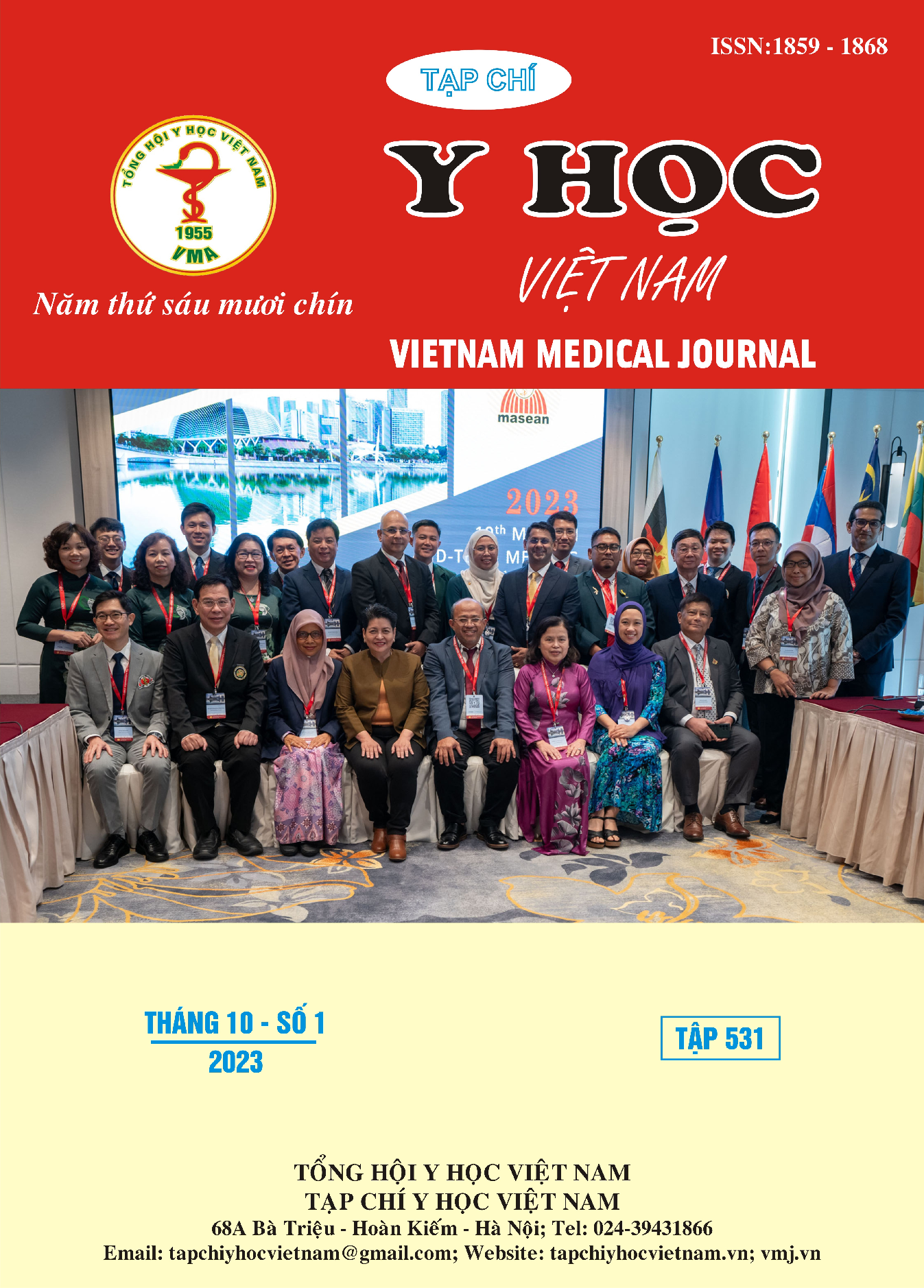BEHAVIORS ADHENRENCE DIETARY REGIME AMONG PATIENTS UNDERGOING HEMODIALYSIS AT NGUYEN DINH CHIEU BEN TRE HOSPITAL
Main Article Content
Abstract
Objectives: To describe the dietary regime behaviors adherence of kidney failure patients undergoing hemodialysis at at Nguyen Dinh Chieu Hospital. Methods: A cross-sectional descriptive study was conducted on 210 outpatients undergoing hemodialysis (HD) at Internal Medicine Department, Nguyen Dinh Chieu Hospital. Patients who met the sampling criteria and agreed to participate in the study, which was conduted using guided an interview with a set of three-part prepared questionnaires: Demographic characteristics, social characteristics and nutritional behavior adhenrence. Results: Behaviors adhenrence dietary regime was at very good 5.2%, good: 77.11%, moderate: 16.7% and poor at 1%. Adherence to fluid restrictions 3.23 ± 0.58 (1.27-4.91); Adhenrence in situation difficult 3.56 ± 0.71 (1-5); Adherence to potassium, Phosphate and medication 2.86 ± 0.52 (1.4-4.4); Adhenrence to sodium restriction 3.1 ± 0.96 (1-5); Self-care 4.65 ± 0.7 (1-5). Conclusions: Behaviors adhenrence dietary regime among patients undergoing hemodialysis at Nguyen Dinh Chieu Hospital reached good level (83±10.48).
Article Details
Keywords
Behaviors adhenrence dietary regime, hemodialysis.
References
2. Ozen N, Cinar FI, Askin D, Mut D, Turker T. Nonadherence in Hemodialysis Patients and Related Factors: A Multicenter Study. The journal of nursing research: JNR. 2019;27(4):e36. doi:10.1097/jnr.0000000000000309
3. Hu L, St-Jules DE, Popp CJ, Sevick MA. Determinants and the Role of Self-Efficacy in a Sodium-Reduction Trial in Hemodialysis Patients. Journal of Renal Nutrition. 2019;29(4):328-332. Doi:10.1053/j.jrn.2013.11.005
4. Machado IM, Bandeira MB, Pinheiro HS, Dutra Ndos S. [Transcultural adaptation of scales for treatment adherence in hemodialysis: Renal Adherence Behaviour Questionnaire(RABQ) and Renal Adherence Attitudes Questionnaire (RAAQ)]. Cadernos de saude publica. 2015; 31(10):2093-8. doi:10.1590/0102-311x00098114
5. Đinh Thị Thu Huyền, Nguyễn Mạnh Dũng, Phạm Thị Hằng và cộng sự. Thực trạng tuân thủ chế độ dinh dưỡng của người bệnh suy thận lọc máu chu kỳ tại Bệnh viện Đa khoa Công an tỉnh Nam Định. 2019;2(1):35-40. doi:10.1053/001
6. Naalweh KS, Barakat MA, Sweileh MW, Al-Jabi SW, Sweileh WM, Zyoud seh. Treatment adherence and perception in patients on maintenance hemodialysis: a cross – sectional study from Palestine. BMC Nephrology. 2017; 18(1):178. doi:10.1186/s12882-017-0598-2
7. Saglimbene VM, Su G, Wong G, et al. Dietary intake in adults on hemodialysis compared with guideline recommendations. Journal of nephrology. 2021;34(6):1999-2007. doi:10.1007/ s40620-020-00962-3
8. Ozen N, Cinar FI, Askin D, Mut D, Turker T. Nonadherence in Hemodialysis Patients and Related Factors: A Multicenter Study. 2019; 27(4):e36. doi:10.1097/jnr.0000000000000309.


